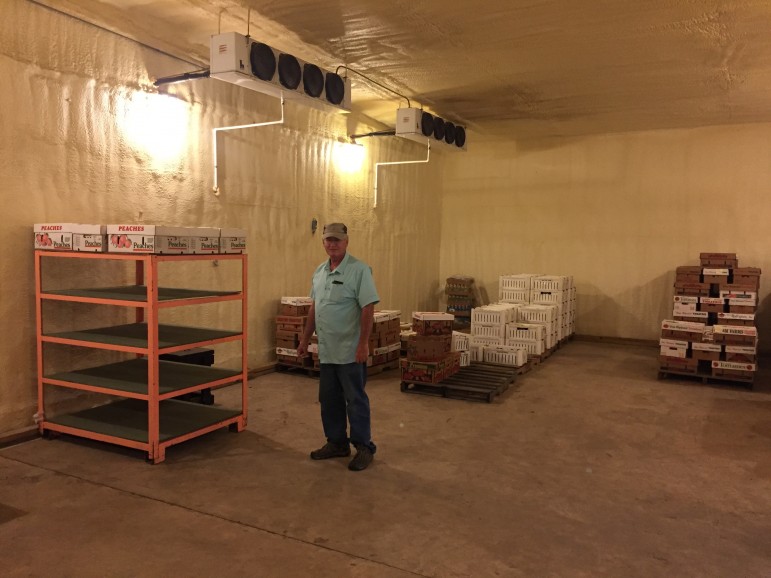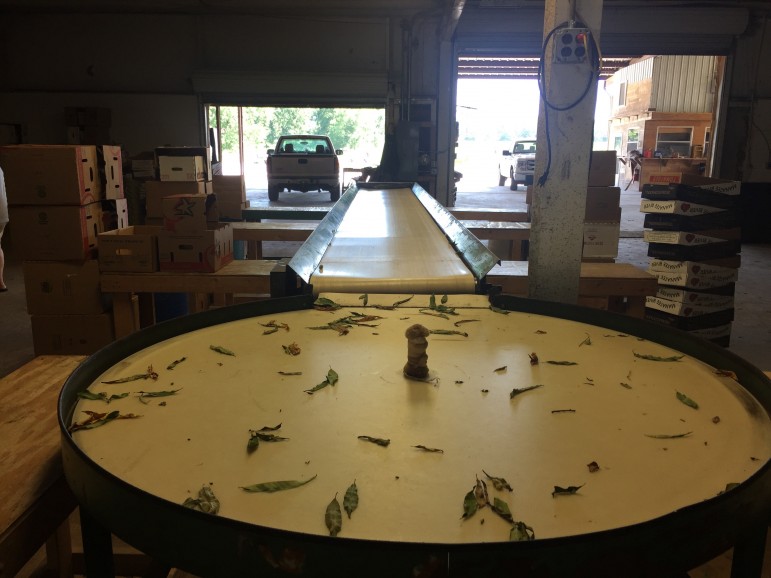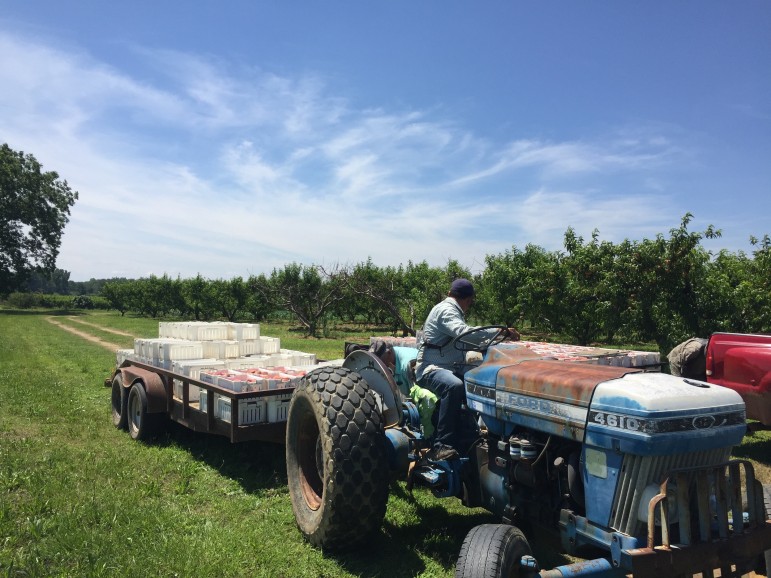Get ‘Em Now: Local Peach Shortage Looms
If you love locally grown peaches, the kind you see at roadside stands and farmers markets in Alabama, stock up while you can. Mainly because of weird weather over the winter, there’s almost certainly going to be a dip in supply.
There’s already a significant dip in the number of peaches in Chilton County farmer Henry Williams’ cooler. Walking into it is an intense sensory experience. The concentrated peach essence on the bracing air makes your mouth water. But besides the few boxes of fruit, there’s something unusual in that cavernous room: space.
“Normally this time of year, we’d be pressed to fit everything in here,” says Williams. “At least two or three days a week, this thing’d be full. It ain’t even been half full this year.”
It’s ironic learning about this in a cooler, because the main reason there are fewer peaches here and across the South is warmth.
As the appropriately named Jim Pitts, who heads Auburn University’s Chilton Research and Extension Center, puts it, “in order for the peaches to develop, they have to have so many hours of cold weather. [But last winter] we did not have enough chill for the hormones of that tree to trigger, for the flowering to begin, for the leaves to begin. This could be a double-whammy, because not only do you lose your crop, but we could be losing trees.”
Even just riding in Henry Williams’ pickup, you can see that double-whammy is not hypothetical. Healthy looking trees and sickly trees are interspersed across his 125-acre orchard.
“We’re going to lose a lot of trees this year due to the lack of chill,” he says. Some of the trees are relatively heavy with peaches. But many are not. Williams points to one:
“This tree – there might be 25 on it. There should be 400.”
Williams says he’s had good years recently that will help tide him over, but farmers who haven’t will likely have to rely on other sources of income. That’s also true of the field workers, who are getting far fewer paid hours than normal.
“It’s a pretty detrimental thing because there are growers in our county that have less than 20 percent of a crop,” says Williams.
If lots of trees die, there may be a long-term drop-off too. It takes three or four years for a peach tree to start producing.
But what about this season?
“Between now and the Fourth [of July], there are some growers that will basically be finished with the season by then. Normally our season lasts until the end of August,” says Williams.
In other words, though there’ll be plenty of peaches shipped in from California and other places, if you like the unique taste of the locally grown fruit, they’ll likely cost more, and you might want to get them now.
Alabama coal mine keeps digging after hundreds of fines and a fatal explosion
Following the death of a grandfather, Crimson Oak Grove Resources has left a community afraid for their homes and lives. An expert warns one resident may need to evacuate her home while she still can.
Florida’s 6-week abortion ban will have a ‘snowball effect’ on residents across the South
Abortion rights advocates say the ban will likely force many to travel farther for abortion care and endure pregnancy and childbirth against their will.
Attitudes among Alabama lawmakers softening on Medicaid expansion
Alabama is one of ten states which has not expanded Medicaid. Republican leaders have pushed back against the idea for years.
Birmingham is 3rd worst in the Southeast for ozone pollution, new report says
The American Lung Association's "State of the Air" report shows some metro areas in the Gulf States continue to have poor air quality.
Why haven’t Kansas and Alabama — among other holdouts — expanded access to Medicaid?
Only 10 states have not joined the federal program that expands Medicaid to people who are still in the "coverage gap" for health care
Once praised, settlement to help sickened BP oil spill workers leaves most with nearly nothing
Thousands of ordinary people who helped clean up after the 2010 BP oil spill in the Gulf of Mexico say they got sick. A court settlement was supposed to help compensate them, but it hasn’t turned out as expected.










